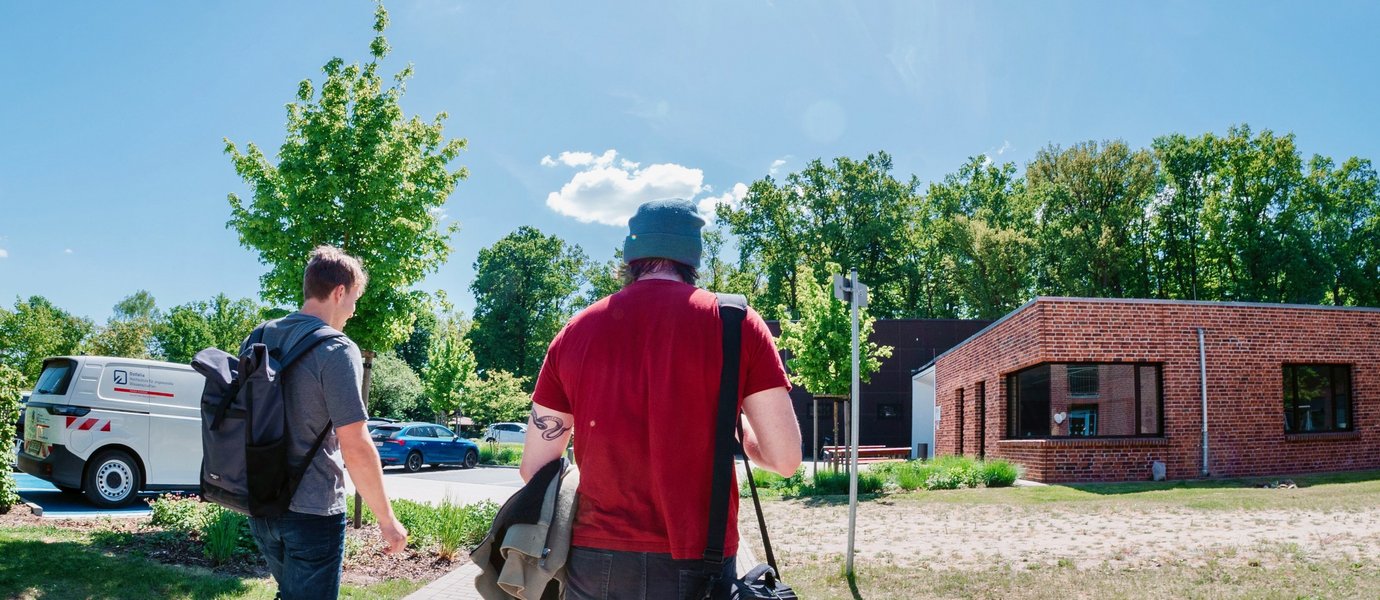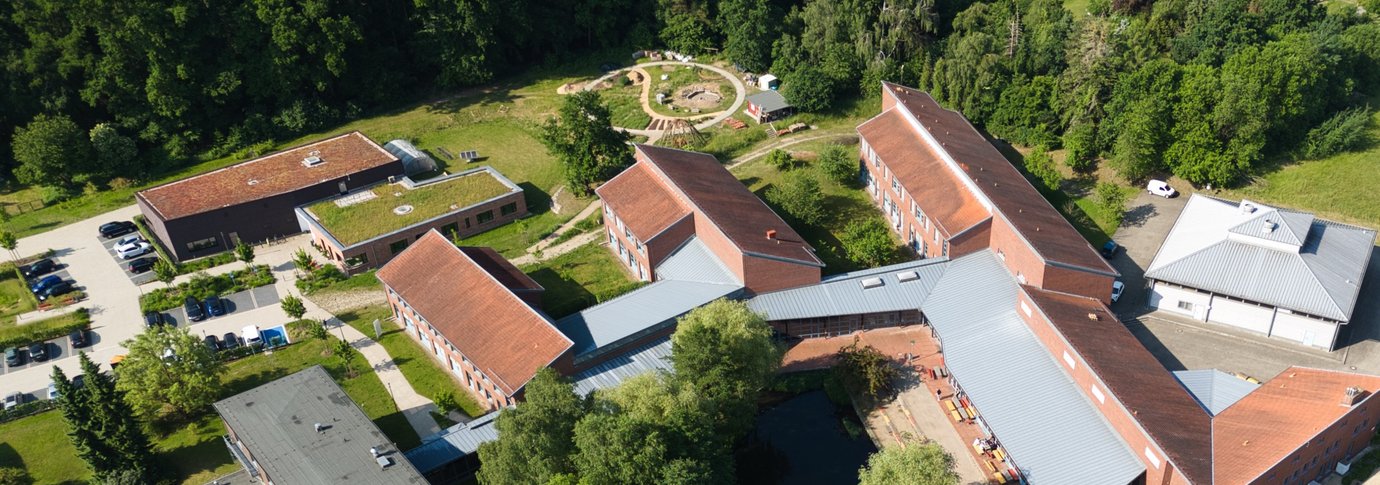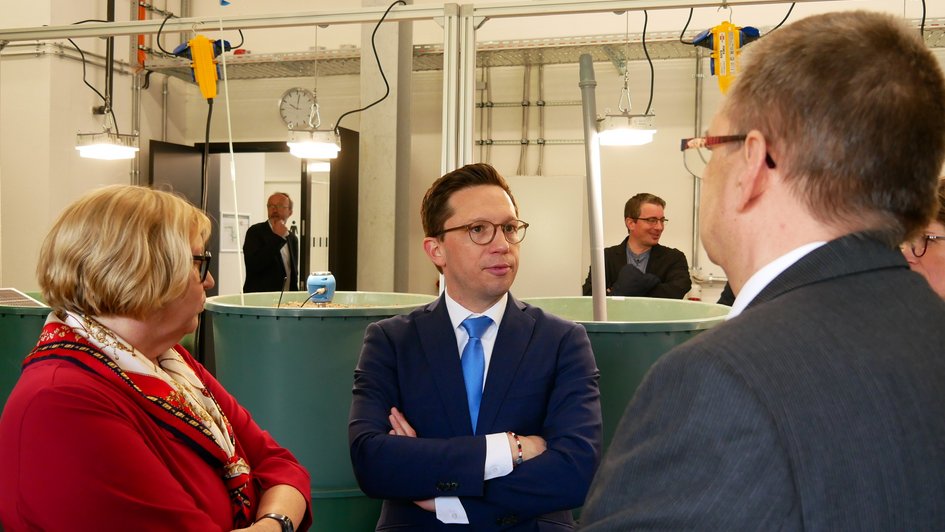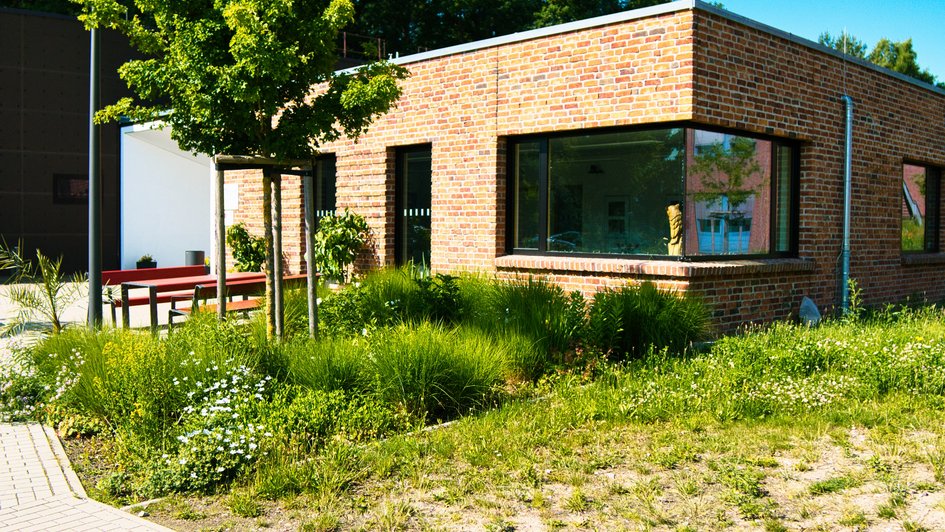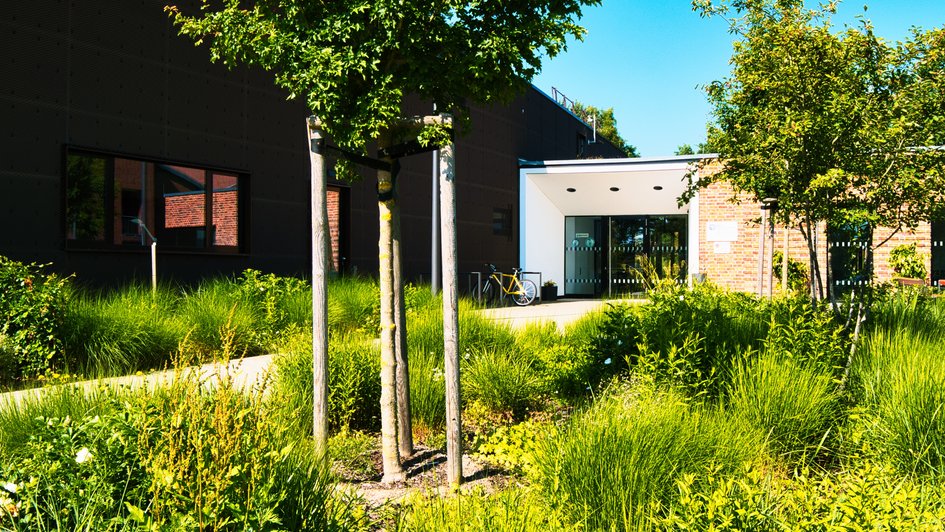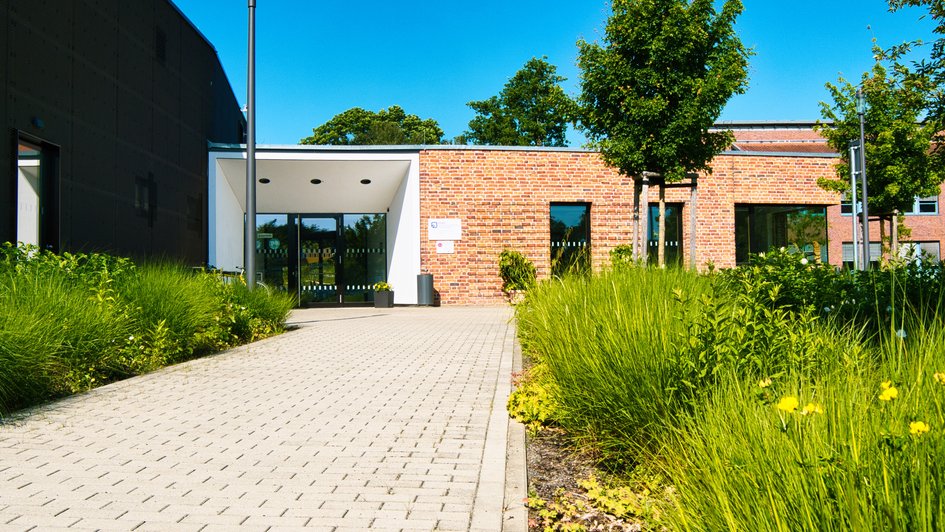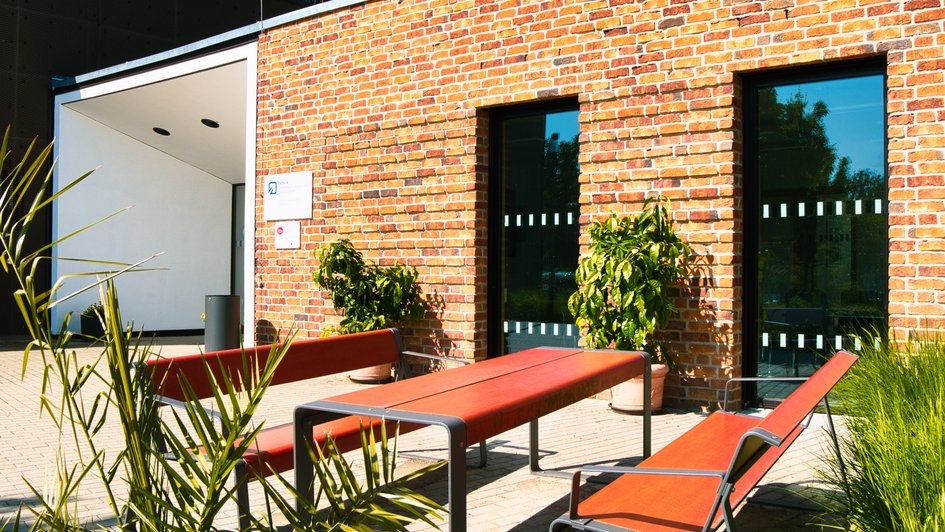Institute for Sustainable Irrigation and Water Management in Rural Areas
The Institute for Sustainable Irrigation and Water Management in Rural Areas (INBW) was founded in 2019 and is headed by Prof. Dr. Klaus Röttcher and the participating professors Thorsten Albers, Artur Mennerich and Andreas Teichert. The INBW is dedicated to the mission of securing and increasing the availability of water for people and the environment and protecting against water risks. With innovative approaches, the institute contributes to sustainable water management and develops solutions for improved water utilisation in rural areas.
Institute for Sustainable Irrigation and Water Management in Rural Areas
All current projects, partners and team members
To the INBW website (external link, opens in a new window)Research areas of the INBW
There are four strategies for increasing water availability, which ideally complement each other.
Retain precipitation in the landscape
First and foremost is water retention in the landscape; not just sponge cities, but sponge landscapes are needed. The aim here is to keep precipitation in the landscape for longer instead of draining it away quickly. To achieve this, measures such as drainage systems, ditches and watercourse structures must be completely or partially dismantled wherever possible. It should be noted that most areas will continue to be utilised in some form and it is therefore not possible to completely dispense with water management measures. This is also a major issue in the rewetting of moors.
Efficient water use and minimising losses
Furthermore, the available water should be used efficiently and losses minimised. Many measures have already been implemented in agriculture in this area, insofar as they are economical, but there is still further potential that can be tapped and there is still a need for research in some areas.
Utilising alternative water resources
One area in which not so many measures have yet been implemented is the utilisation of alternative water resources, such as clear water from sewage treatment plants, process water, drainage water, water from water reservoirs or water from surface waters in the event of increased runoff. In the case of these alternative water resources, often only a portion is produced during the growing season and there is not always a simultaneous need for irrigation. It therefore makes sense to install reservoirs here in which the water is collected so that it can be used in a targeted manner during the irrigation period. Alternatively, the water can also be infiltrated and stored in the groundwater if the soil conditions allow it. There are problems with alternative water resources, particularly with regard to water quality, as some water sources still contain undesirable substances and require further purification before use.
Education and training
Linked to the above strategies is education and training, as it is important for practitioners to quickly implement the findings on water-saving management, new technologies and recommendations. Here, too, new concepts are required, e.g. for hybrid learning in classroom and online, as well as for the exchange of experience. All four strategies can in turn be supported and advanced by new possibilities of digitalisation and the use of artificial intelligence, and there is still great potential for development here too.
Overview of INBW research projects
The building
The institute building was constructed and equipped with funds raised from the ERDF research infrastructure programme. in 2023, the building was inaugurated by Minister Heiko Mohrs and the then President of Ostfalia, Prof Dr Rosemarie Karger, and the staff moved in. The building offers space for 14 office workstations, 4 laboratories totalling 300 m³ and a workshop.
The hydraulic engineering test hall is also available for teaching purposes
Professors involved
Director, Board of Directors
As head of the INBW institute, Prof Dr Klaus Röttcher is primarily responsible for the implementation of the projects. He also holds a chair at the Ostfalia University of Applied Sciences in Suderburg.
Prof. Dr.-Ing. Klaus Röttcher
Building I, Room I 08, Suderburg
Professor für
• Hydromechanik
• Angewandte Hydrologie
• Stauanlagen und Wasserkraftanlagen
• Flussgebietsmanagement
• Hochwasserrisikomanagement
• Modellierung in der Wasserwirtschaft
• Klimawandel und Umweltauswirkungen
Institutsleitung INBW

Management Board
Prof. Dr.-Ing. Artur Mennerich
Building I, Room I 05
• Siedlungswasserwirtschaft (Abwasserbehandlung)
• Verfahrenstechnik
• Umwelttechnologie
• Biogas
• Wasserversorgung
More
Approach
Building I
Herbert-Meyer-Straße 7
29556 Suderburg
Plan your route (Google) (external link, opens in a new window)
Ihre Cookie-Einstellungen haben diese Karte blockiert. Setzen Sie auch bei “Drittanbieter” einen Haken, um die Karte anschauen zu können.
